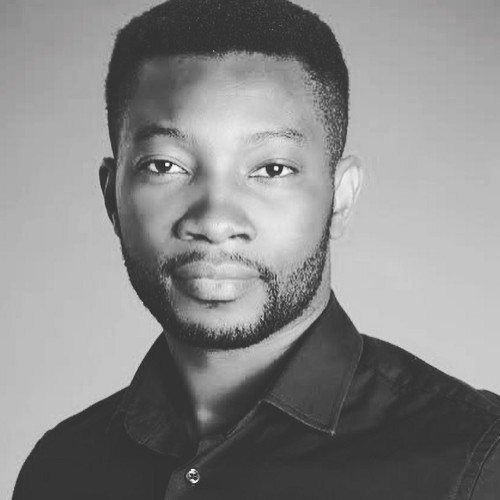Skill is the unified force of experience, intellect and passion in their operation.
John Ruskin could not have defined skill any better.
When you strive to consistently improve your skills, you enjoy more success in life and at work.
Don’t give up on lifelong learning. Ever.
Research shows that it pays beyond the skills you acquire.
More than ever before, a challenged, stimulated brain may well be the key to a vibrant later life.
“Every skill you acquire doubles your odds of success,” says Scott Adams
Start spending time preparing for the future even when there are more important things to do in the present and even when there is no immediately apparent return to your efforts.
Begin to plant seeds every day that will yield the best and most fulfilling life now and in the future.
These valuable skills can radically improve your life. They may not seem earth shattering at first glance, but you’ll be surprised at just how much they can affect your life and career now and for the rest of your productive life.
Get gritty
Grit entails working strenuously towards challenges, maintaining effort and interest, despite failure, adversity, boredom, and plateaus in progress.
Daniel Coyle, author of The Little Book of Talent explains, “GRIT is that mix of passion, perseverance, and self-discipline that keeps us moving forward in spite of obstacles.”
The only person that can really push you a little bit further in life is yourself.
Grit is both a trait and a skill.
And the good new is, you can cultivate or better still grow your grit to strive for what means a lot to you.
It’s a skill that can be learned and practiced over time.
According to psychologist Angela Duckworth, author of Grit: The Power of Passion and Perseverance, the personal quality she calls “grit” is more important than talent or intelligence in predicting success.
Grit is associated with perseverance, resilience, ambition, and the need for achievement.
It involves maintaining goal focused effort for extended periods of time.
You can develop your capacity for grit.
Your response to a challenging situation is more important the obstacle you face.
Ryan Holiday says “obstacle is the way”. And you need grit to push through the obstacle every time you face a challenge.
The ability to stick with and pursue a goal over a long period is an important indicator of achieving anything worthwhile in life.
Grit is a better indicator of success than talent. No matter how talented you think you are, if you don’t put in the work, it will amount to nothing.
The need for adaptability has never been greater than it is now
The world of work is changing at an ever increasing pace.
In Adaptability: “The Art of Winning in an Age of Uncertainty” Max McKeown argues that, “All failure is failure to adapt, all success is successful adaptation.”
We live in ever-changing world which is unlikely to ever slow down.
So, what mattered yesterday (e.g. skill, knowledge, social circle, etc.) very much so might not be worth a dime tomorrow.
The ability to change (or be changed) to fit new circumstances — is a crucial skill to master.
Leon C. Megginson once observed, “It is not the strongest or the most intelligent who will survive but those who can best manage change.”
Change used to be slow and incremental: now it is rapid, radical and unpredictable.
Charles Darwin said, “It is not the strongest of the species that survives, nor the most intelligent that survives. It is the one that is the most adaptable to change.”
Adaptability enables us to dwell on new circumstances and stay on top of the situation.
Of course, this skill is best when combined with insight, giving us fresh perspective before the change itself.
Growth depends on how adaptable you are.
To stay relevant, most companies will need people who can change with time.
Master failure to success better
Sounds strange, right?
Everyone is always looking for a new way to succeed, the fastest route to success, the best study methods, “How do I get better at [x] without doing [y]?”
The first step is to fail, and not focus on results but learn from the process.
Nothing is perfect; nothing will ever be perfect.
Everything is a learning process. Those who have mastered failure succeed better.
“The evolutionary algorithm — of variation and selection, repeated — searches for solutions in a world where the problems keep changing, trying all sorts of variants and doing more of what works,” says Tim Harford in Adapt: Why Success Always Starts with Failure.
Every failure brings you one step closer to success as long as you learn. It’s only a failure when we fail to rise again after a fall.
Entrepreneurs know their chances of failing are greater than those of succeeding, but still they try and risk their time and money.
If you fail, do it quickly, and more importantly, learn quickly.
How to learn, unlearn and relearn
“The illiterate of the 21st Century are not those who cannot read and write but those who cannot learn, unlearn and relearn,” says Alvin Toffler.
Learning agility is the name of the game.
Unlearning is the new learning.
Your ability to proactively make changes in your career is what will make a crucial difference to where you find yourself even just five years from now.
To succeed today, you must be in a constant state of adaptation — continually unlearning old ‘rules’ and relearning new ones.
That requires continually questioning assumptions about how things work, challenging old paradigms, and ‘relearning’ what is now relevant in your job, your industry, your career and your life.
People who find opportunities in a changing environment are those who are actively looking for them.
Your real education begins with your career, which demands that you continuously learn, irrespective of how often you need to unlearn and relearn.
How to actively and skillfully conceptualize, apply, analyse, synthesise information
The ability to actively and skillfully conceptualize, apply, analyse, synthesise, and/or evaluate information gathered from, or generated by, observation, experience, reflection, reasoning, or communication, is of immense importance to work.
Francis Bacon once said, “Critical thinking is a desire to seek, patience to doubt, fondness to meditate, slowness to assert, readiness to consider, carefulness to dispose and set in order; and hatred for every kind of imposture.”
Decision making and problem solving require gathering reliable information, evaluating the information for a variety of solutions and selecting the most appropriate option based on the criteria and situation.
People who can look at problems from a different angle often end up solving them in completely unexpected, often elegant ways.
At the same time, they expose how narrowly the majority had viewed the problem, or whether it even was a problem.
Creative thinkers are innovative and inventive and are more likely to devise new ways of doing things that add value to the work environment, making systems and procedures more efficient.
The ability to handle yourself, handle others and handle what’s happening around you
In a very practical sense, we have two minds, one that thinks and one that feels. Highly emotionally intelligent (EI) people rank high on responsiveness, empathy, listening, and self-awareness.
And they excel at interpersonal interaction.
The reason emotional intelligence is so widely valued is pretty simple. It plays a role in everything.
In Emotional Intelligence: Why It Can Matter More Than IQ, author Daniel Goleman writes, “People with well-developed emotional skills are also more likely to be content and effective in their lives, mastering the habits of mind that foster their own productivity; people who cannot marshal some control over their emotional life fight inner battles that sabotage their ability for focused work and clear thought.”
People skills are so important now and will continue to be in high demand in the future.
EI allows us to create relationships with others, provides insights into people’s motives and allows us to predict responses.
Any discipline that benefits from the emotional intelligence that only humans can provide will be in high demand.
If you are not a people’s person, it’s not too late. You can still learn how to better relate with others. You will need soft skills to thrive in the future.
If you enjoyed this post, you will love my new course. “Thinking in Models: The Mental Frameworks, Models, and Thinking Patterns of Top Achievers,” will launch soon. It’s a research-backed course that will help you to think better, solve problems at multiple levels of depth, and make complex decisions with confidence. Sign up here to be notified when it launches.
You can also subscribe to Postanly Weekly (my free weekly digest of the best productivity, behaviour change, and neuroscience posts). Subscribe and get a free copy of my new book, “The Power of One Percent Better: Small Gains, Maximum Results”. Join over 43,000 people on a mission to build a better life.
Originally published at medium.com


